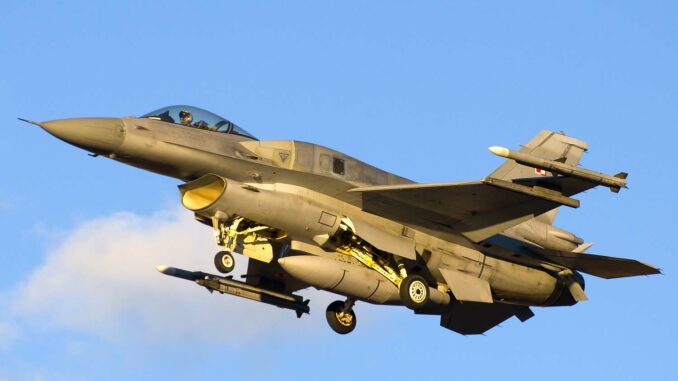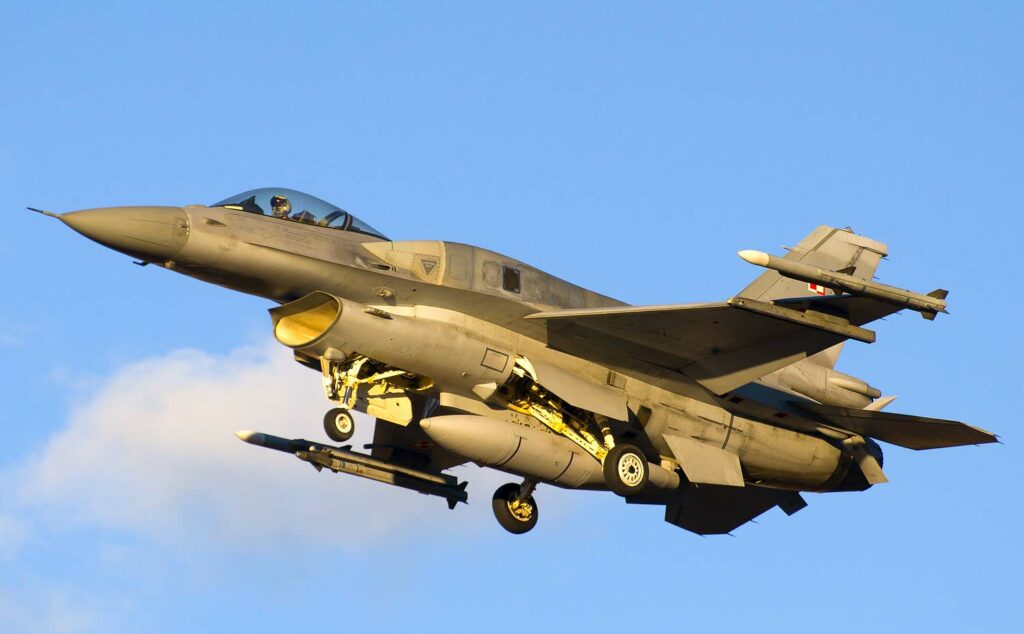
Poland mobilizes F-16 jets and a NATO air tanker to secure its airspace in the wake of Russian missile attacks on Ukraine.
Against a backdrop of rising tensions in Eastern Europe, Poland recently deployed F-16 jets and a NATO air tanker to protect its airspace, in response to escalating Russian missile strikes on Ukraine. This follows the suspected entry of a Russian missile into Polish airspace, exacerbating fears of regional escalation. This article looks in detail at the deployment of Polish F-16s, the geopolitical context, the strategic implications and the potential consequences of this decision in a region already beset by high tensions.
Mobilization of Polish F-16s: a strategic defense measure
Poland has mobilized two pairs of F-16 fighters and an aerial refueling tanker in response to intensified Russian military activity. The decision comes after a missile, probably Russian, was detected in Polish airspace. The Polish authorities, faced with a direct and indirect threat from Russian aggression in Ukraine, have taken steps to strengthen their air defense. This reaction underlines the importance of air security in the current context, and the need for Ukraine’s neighboring nations to remain vigilant against potential incursions. Poland’s commitment to defending its airspace is also representative of solidarity and cooperation within NATO in the face of external threats.

Geopolitical context of East European tension
The current situation in Eastern Europe is the result of several months of conflict between Russia and Ukraine, exacerbated by Russian missile strikes and drone attacks on Ukrainian targets. The recent alleged intrusion of a Russian missile into Polish airspace has caused considerable alarm, highlighting the risks of regional escalation. Poland’s response, supported by NATO, is indicative of the growing tension in the region and the need for neighboring countries to take preventive measures. This situation is part of a wider framework of regional security and power dynamics, where Russia’s actions continue to influence the stability of the entire region.
Consequences of Polish air mobilization
The deployment of Polish F-16s has significant implications for regional security and the dynamics of the ongoing conflict. First and foremost, it represents a show of force and a clear message to Russia regarding the defense of Polish airspace. It could also serve as a deterrent against future air incursions. On a broader level, the mobilization of the F-16s raises questions about the balance of power in the region and NATO’s response to Russian military action. In addition, it could prompt other nations to step up their own air security measures, contributing to further militarization of the region.
Other relevant information
The situation in Eastern Europe remains volatile, with potential implications for global security. Russia’s actions in Ukraine, and the responses of neighboring countries such as Poland, are taking place against a backdrop of growing geopolitical tensions. The evolution of the conflict, international reactions and implications for regional stability will be crucial in the weeks and months ahead.
Poland’s deployment of F-16s in response to Russian strikes on Ukraine marks an important step in the regional response to Russian aggression. This action highlights the need for robust air defense measures in a context of uncertain regional security. As the conflict continues to develop, the reaction of the international community and the impact on regional stability will remain key focal points.
War Wings Daily is an independant magazine.